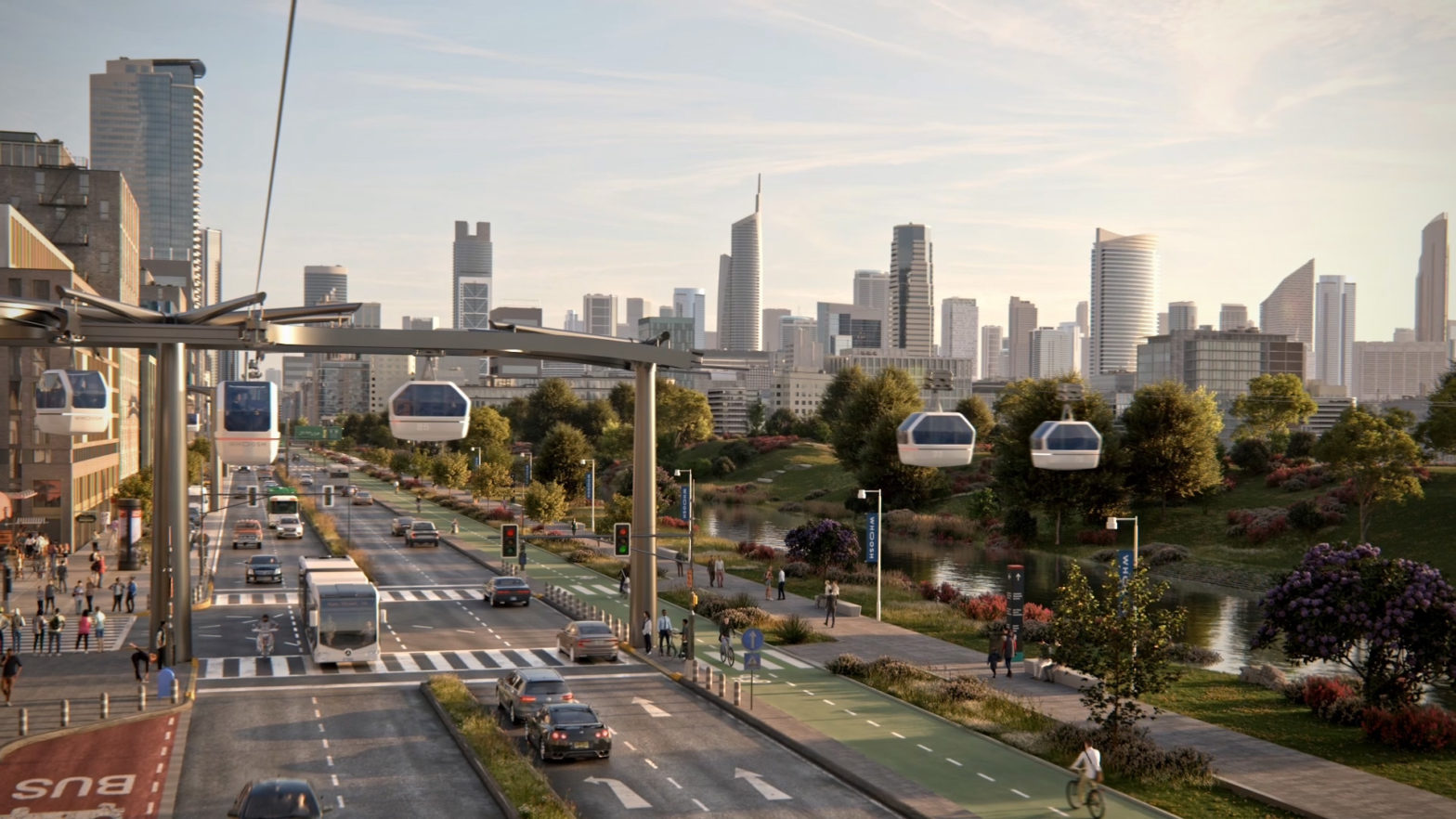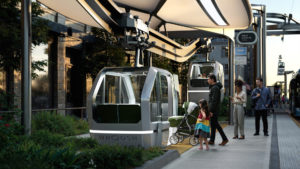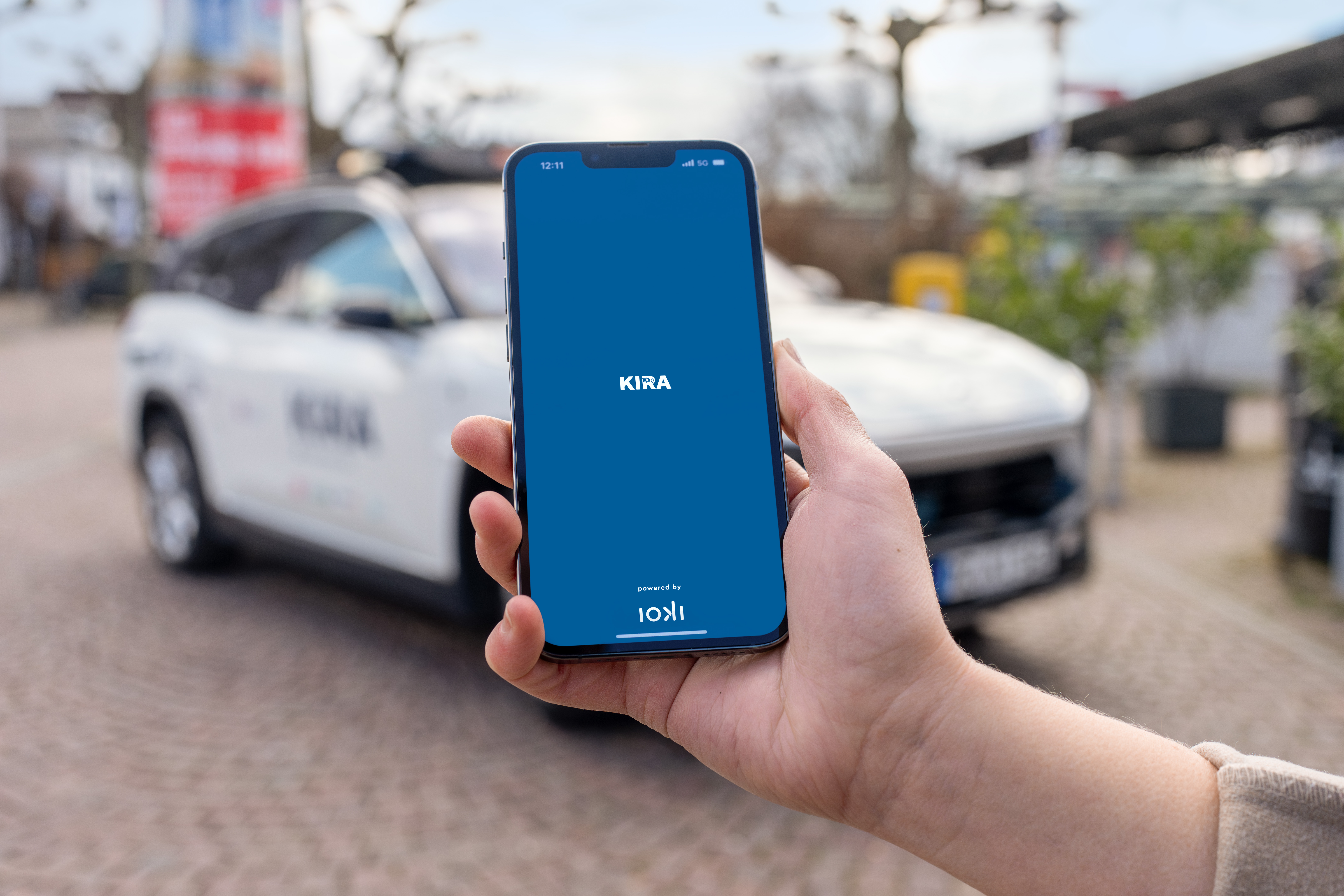
Photo: Holmes Solutions
Texas cities look to cable cars to beat congestion
11 July 2024
by Christopher Carey
Five North Texas cities – Dallas, Arlington, Frisco, DeSoto and Plano – are evaluating an autonomous elevated cable and rail mobility system aimed at relieving traffic congestion.
Google spin-off Swyft Cities is currently working with the North Central Texas Council of Governments (NCTCOG) to identify potential locations for the first US installations.
Vehicles would operate on-demand, and Swyft Cities claims the ‘Whoosh’ network can be built “at a cost far below” conventional transit projects.
“The North Central Texas Council of Governments (NCTCOG) and Regional Transportation Council have a history of meeting transportation challenges with innovative technologies,” said Michael Morris, NCTCOG Director of Transportation.
“Dallas-Fort Worth is one of the fastest-growing regions in the country, adding more than one million residents every seven years. We look forward to working with our public- and private-sector partners to advance the types of transportation solutions that will help us manage this growth and enhance quality of life. These solutions are perfect for urban areas where at-grade space is limited.”
Aerial gondolas
According to Swyft Cities, the transportation system would use “electric vehicles that resemble conventional aerial gondolas but use advanced autonomous technologies to move independently” along an elevated network of fixed cables and rails.
Each pod would seat four to six passengers with room for two additional standing passengers.
“Elevated cable-based systems inherently require minimal infrastructure. For the Whoosh system, it is primarily support posts placed approximately 150 feet apart with cables strung between the posts. It combines a minimal ground footprint with lightweight infrastructure,” a Swyft Cities spokesperson told Cities Today.

“For most conventional transit projects, infrastructure is a significant contributor to costs, whether elevated or ground-level.
“One of the primary reasons we’re working with the five cities in the Dallas-Fort Worth area is that the Regional Transportation Council has an innovative programme called Certification of Emerging & Reliable Transportation Technology (CERTT) that aims to bring first-of-its-kind transportation technology to the region and leapfrog current technologies.”
CERTT
The NCTCOG approved the creation of its CERTT programme in May 2022 for evaluating innovative transportation technologies that can help meet transportation needs in the 12-county Dallas-Fort Worth area.
The programme allows for the development, testing, certification and deployment of new modes of travel, and “seeks to solve a problem for developers of new transportation technologies” by creating partnerships with the public sector “to identify where an innovative and capital-intensive transportation technology can be proven and certified for public use before undertaking widespread
implementation”.
“We’re excited to be working with these five cities to bring advanced transportation to cities in North Texas,” said Jeral Poskey, CEO of Swyft Cities.
“Whoosh provides the ’perfect Uber’ – fast, on-demand, nonstop trips with a great view. Vehicles are waiting for you at stations, instead of the other way around. Whoosh can connect places across North Texas in new ways that will get you there quickly and conveniently, enabling you to glide over street traffic with zero emissions.”
Can it work?
While a public transport orientated cable car system has not yet been established in any US city, similar examples exist in a number of countries predominantly in Latin America.
Mexico City; Medellín, Colombia; and La Paz, Bolivia all operate cable car systems, but their main benefit is related to the cities’ mountainous topographies, and the need to move people who are entirely dependent on public transport over high terrain between urban areas.
Swyft Cities says it has built two prototypes of the technology – one at a Google facility in Silicon Valley, and one in New Zealand.
Funding details for a potential Texas project have yet to be announced.
Image: Holmes_Solutions






